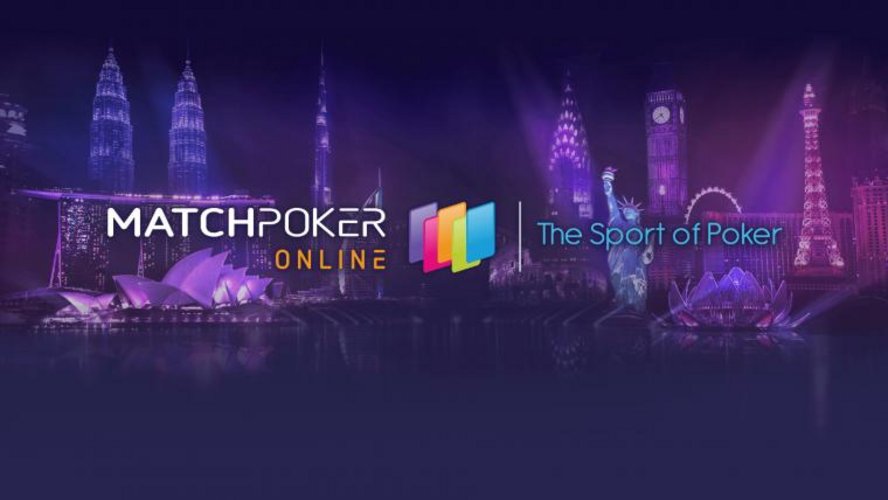If you read part one, we ended in 2009 when the International Federation of Match Poker (IFMP) was formed. As a result, poker was classified as a game of skill by the International Mind Sports Association (IMSA). The IMSA is also recognized by the International Olympic Committee (IOC) itself, and poker's chance to gain Olympic discipline status is closer to reality.
Among the "mental disciplines", the International Olympic Committee currently recognizes chess as a sport under the International Chess Federation (FIDE). Yet it is not played in the Olympiad, and the federation organizes its own Olympiad. This year, chess also appeared in the pilot esports Olympiad (The Olympic Esports Series).
Match Poker
Let's not forget that in this case we are talking about a special poker format - match poker. Match Poker was developed to create a game that is a sport - not a game of chance. We briefly explained its rules in the previous article. To give you an idea, players at multiple tables are dealt the same cards, in the same positions, with the same flop, turn and river. You will be at a table with players who have the same matching cards. The other rules are the same as classic NLH. At the end of the game, an algorithm will analyze the players at each table and estimate your score based on the other players. Thus, luck plays no role in this system. If you win more chips than players who are in the same situation as you, or lose fewer chips, you come out as the winner. At the end of the match, you get a ranking - and gradually over time, your ranking will either improve or deteriorate based on your ability in that format.

Is poker a sport or a game?
Is poker a game or a sport? This question has been picked apart by Pokernews. They took definitions from the respected Oxford Dictionary and Merriam-Webster to help them out.
According to the Oxford Dictionary, a game is "an activity involving physical exertion and skill, especially (especially in modern usage) an activity regulated by set rules or procedures, in which an individual or team competes against another or others." As we discussed in Part I, even standard poker is undeniably a game of skill, despite the not inconsiderable luck factor. Like traditional athletes, the best poker players are those who study, practice, and put in the most work away from the tables. Whether during a private cash game or the prestigious WSOP, poker is governed by set rules and procedures. Finally, it doesn't matter if you're playing heads-up, sit & go or a tournament with thousands of participants, players are constantly competing against each other.

Can we classify poker as a sport? Merriam-Webster defines sport as " a physical activity that is performed for pleasure" or " a particular activity (such as a sporting game) that is so performed". Considering poker as a physical activity may seem nonsensical at first glance, but it is the physical form and the ability to concentrate for long periods of time that can distinguish the top players from the mediocre ones. Let's take a fact that probably no professional or amateur player would dare to argue with. Just as some chess games can last for long hours approaching ten, endless tournament or cash sessions are also characterized by their time-consuming nature. Since in a tournament one mistake or momentary inattention can cost a player his tournament life, it is important to maintain a certain level of concentration during the long hours. And this is where we come to physical fitness - studies suggest that the ability to concentrate is closely related to physical form. Online poker fulfils all these criteria and requires a huge amount of physical and mental stamina for long multi-tabling sessions. Live multi-tabling can also be exceptionally demanding, as Shaun Deeb showed at the 2022 WSOP when he sprinted back and forth between two tournaments.
Playing for no money
What is it about match poker that many players find hard to imagine? For poker to ever appear on the Olympic scene, it shouldn't be about money this time, but about pure competition and national pride. Every Olympian who makes a living as a professional in their sport chooses to give up the idea of big prize money at the Olympics. The idea of bringing home a medal resonates as much more powerful - and that's what the players and the entire poker community would have to accept. However, this would remove one of the most exciting elements of why people play and watch high stakes games.

Another condition that might be difficult to meet is the fact that the Olympic poker sport would require enough athletes. While match play is not very popular, the Olympic Committee may take this as a reason to refuse. Therefore, the more people know about match play, the more likely it is that poker Olympics will be a part of the Olympics.
Present
The International Match Poker Federation currently has 50 national poker federations that support the idea of Olympic poker. Among them we can also find the Czech Asociace Pokerových Klubů o.s., the Austrian Austrian PokerSport Association or the German Deutscher Poker Sportbund. The IFMP is actively lobbying for poker to be included in the 2028 Olympic Games, which will take place in Los Angeles. It is to be tested at the Olympics in Paris next year. As long as the activity is a legitimate sport, the Olympics Association has no reason to exclude it. If it does, we can expect other interesting and game-changing events. Is it possible that new formats of world poker tournaments will emerge, such as the WSOP Match Play?
Source: Olympics, Britannica, CardPlayer, Gamingzion, Pokernews, Chess, ncbi

